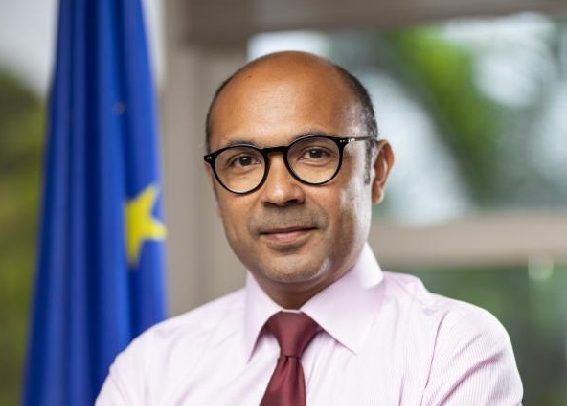Head of the Delegation of the European Union to Ghana, Irchad Razaaly
The European Union (EU) has issued €80,000 in humanitarian funds to intensify the floods preparedness in the five northern regions of the country.
This is in response to the warning of the National Disaster Management Organization (NADMO) and the Meteorological Agency, of increased rainfall and flooding in Northern areas.
The EU believes that the funding will support detection of early warning mechanisms, update of risks analysis and monitoring mechanisms, trigger anticipation actions to mitigate and/or prevent floods impacts and identify priority actions and response preparedness.
The EU disclosed in the press statement that, the funding seeks to mitigate the impact of floods for potentially 50,000 people in Northern parts of the country during the peak of the season by reducing their shelter, WASH and health vulnerability.
This they belief will enable the Ghanaian Red Cross to implement both anticipatory and early actions and will prop up preparedness actions such as training of volunteers, prepositioning of response stocks that should enable quicker deployment of a response, early evacuation of people in identifies sites, simulation exercises, awareness sessions for water related diseases prior the floods season.
It added that the humanitarian assistance targeted areas were the Northern, the Upper East, and the Upper West, where around 2,144,677 people are at risk.
Particularly focusing on vulnerable areas where those floods would have significant consequences on agriculture and community economical resilience of riverbanks communities.
“This funding is part of the EU’s overall contribution to the Disaster Relief Emergency Fund (DREF) of the International Federation of Red Cross and Red Crescent Societies (IFRC)”it explained.
It also revealed that the EU will introduce an approach to mainstream preparedness and risk reduction measures across all its humanitarian programming.
“The European Commission is at the forefront of promoting risk reduction and anticipatory actions. Signatory to the Sendai Framework for Disaster Risk Reduction (2015-2030), the European Commission supports adopting a risk-informed approach to all EU policies and programmes” it stated.
BY Nafisatu Abdul Razak


